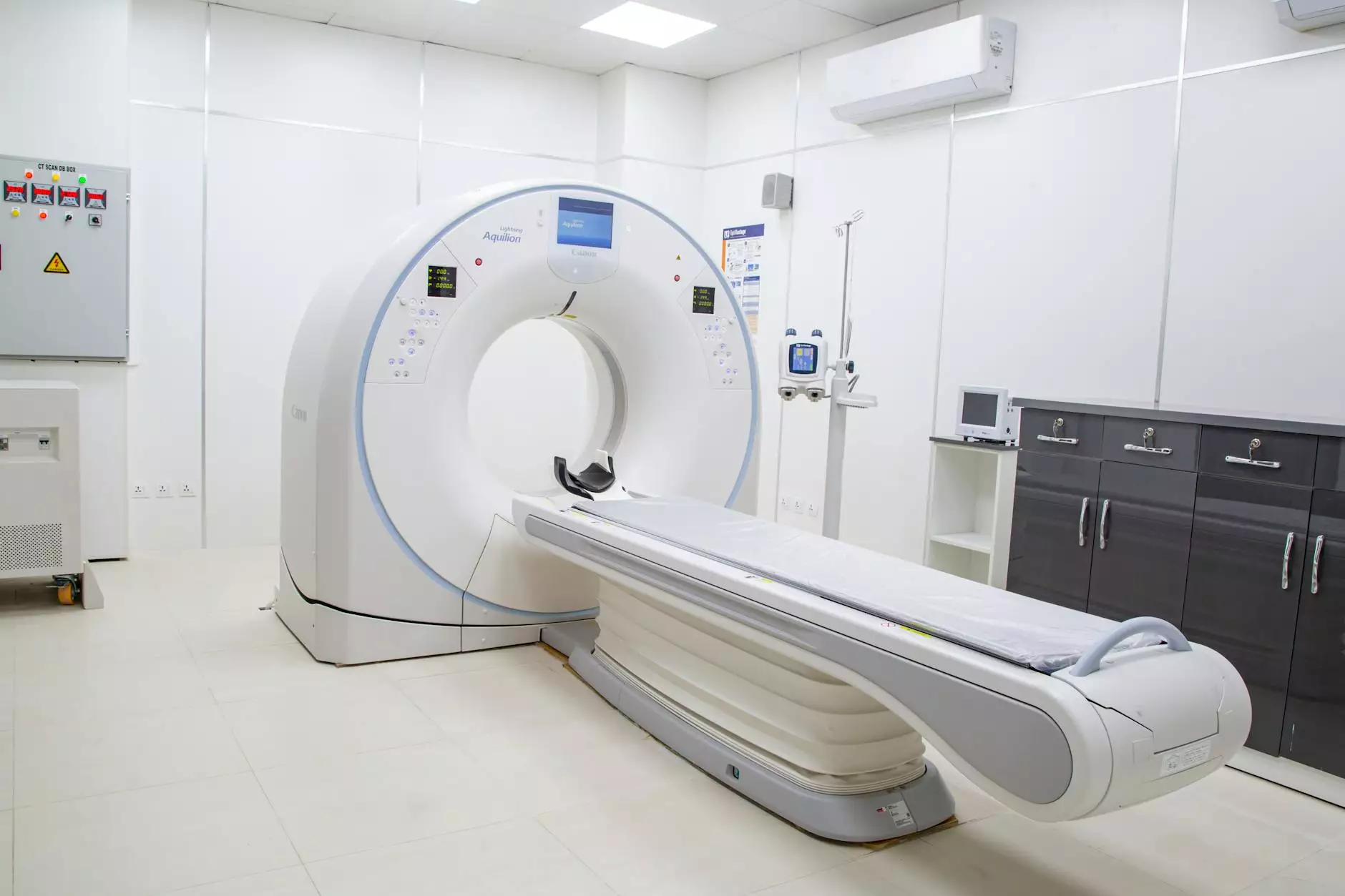Transforming Healthcare with Non-Magnetic MRI Tools

The field of medical imaging continues to evolve, and one of the most promising advancements is the adoption of non-magnetic MRI tools. These tools not only ensure patient safety but also enhance the quality of diagnostics. In this article, we will delve into the complexities of non-magnetic MRI tools, their applications, benefits, and how they are shaping the future of healthcare.
What are MRI Tools?
Magnetic Resonance Imaging (MRI) tools are essential in modern diagnostics, providing detailed images of the organs and tissues of the body. They function through the principles of magnetic fields and radio waves to create high-resolution images that assist healthcare professionals in diagnosing a variety of health issues.
Understanding Non-Magnetic MRI Tools
Unlike traditional MRI tools, non-magnetic MRI tools utilize alternative materials that do not interfere with the magnetic field of the MRI machine. This innovation is vital for patients who have implanted medical devices or metallic foreign bodies, which can pose serious risks during a standard MRI procedure.
Benefits of Non-Magnetic MRI Tools
Non-magnetic MRI tools present numerous benefits that are invaluable to both healthcare providers and patients:
- Enhanced Safety: With no risk of magnetic interference, patients with pacemakers or other implanted devices can undergo MRI scans without complications.
- Improved Diagnostic Accuracy: These tools provide highly detailed images that can lead to more accurate diagnoses, ultimately improving patient outcomes.
- Broader Patient Accessibility: Non-magnetic tools allow a wider range of patients to receive essential imaging services, ensuring that everyone has access to quality healthcare.
- Less Noise: Non-magnetic MRI tools often produce less noise than traditional MRI, which can be more comfortable for patients during the scanning process.
- Versatile Applications: They can be used across various medical applications, including musculoskeletal imaging, neurological assessments, and more.
Applications of Non-Magnetic MRI Tools in Healthcare
The applications of these innovative tools are vast, spanning numerous healthcare fields.
1. Neurology
In neurology, non-magnetic MRI tools are essential for diagnosing conditions such as tumors, multiple sclerosis, and other neurological disorders. The detailed imaging helps in understanding the intricacies of brain structures without the risk of magnetic interference.
2. Orthopedics
Orthopedic specialists utilize non-magnetic MRI tools to assess joint and bone conditions accurately. These tools help visualize cartilage damage, ligament tears, and other musculoskeletal issues, aiding in the formulation of treatment plans.
3. Cardiology
For patients with implanted cardiac devices, non-magnetic MRI tools allow for safe imaging. This is crucial in cardiology, where understanding heart anatomy and function is essential for effective treatment.
4. Oncology
Oncologists benefit immensely from non-magnetic MRI tools, as the detailed images assist in the detection and monitoring of tumors. Early detection is vital for successful treatment outcomes.
Future of MRI Technology: The Role of Non-Magnetic Tools
The future of MRI technology looks bright, with non-magnetic MRI tools leading the charge towards safer and more effective diagnostic imaging.
Innovation and Research
Continuous research and innovation are driving the development of more refined non-magnetic MRI tools. As technology progresses, we can expect higher resolutions, faster scanning times, and increased patient comfort during procedures.
Integrating AI with MRI Tools
The integration of artificial intelligence with MRI technology, especially non-magnetic tools, could enhance image analysis further, leading to quicker and more precise diagnostics.
The Importance of Choosing the Right Diagnostic Services
When selecting a diagnostic service provider, it is crucial to choose one that prioritizes patient safety and uses the latest technology, including non-magnetic MRI tools.
What to Look For in a Medical Center
Choosing a medical center for MRI scans involves considering several factors:
- Reputation: Research the medical center's reputation, particularly in diagnostic services.
- Technology: Ensure they use advanced imaging technologies, such as non-magnetic MRI tools.
- Qualified Professionals: Look for experienced radiologists who specialize in interpreting MRI images.
- Patient Reviews: Consider patient reviews to gauge the quality of care provided.
Conclusion: The Future is Non-Magnetic
The transition to non-magnetic MRI tools is more than just a trend; it is a vital step towards enhancing patient safety and improving diagnostic capabilities. As healthcare continues to evolve, these tools will play a crucial role in transforming how we understand and address health issues.
At Echo Magnet Services, we are dedicated to leveraging the latest advancements in medical technology to provide superior diagnostic services. Our commitment to safety, accuracy, and patient care makes us a leader in the field of diagnostic imaging. Explore our offerings to learn how non-magnetic MRI tools can benefit you or your patients today.
FAQs about Non-Magnetic MRI Tools
1. Are non-magnetic MRI tools as effective as traditional MRI tools?
Yes, non-magnetic MRI tools provide similarly high-quality images and can be used in various medical applications without the risks associated with magnetic interference.
2. Can anyone use non-magnetic MRI tools?
Non-magnetic MRI tools are specifically designed for patients with contraindications to standard MRI, such as those with implanted devices or metal implants. However, they are also suitable for all patients regardless of medical history.
3. How can I find a medical center that offers non-magnetic MRI?
Research medical centers in your area, looking specifically for those that highlight their use of non-magnetic MRI tools in their services. Patient reviews and professional endorsements can also guide your search.
4. What is the cost associated with non-magnetic MRI scans?
The cost of non-magnetic MRI scans can vary based on location, medical center, and whether additional procedures are involved. It is advisable to check with your healthcare provider or insurance company for specific pricing information.
5. Can non-magnetic MRI tools aid in early disease detection?
Absolutely! The clarity and detail provided by non-magnetic MRI tools make them invaluable in the early detection of diseases, leading to prompt treatment and better patient outcomes.
mri tools non magnetic








